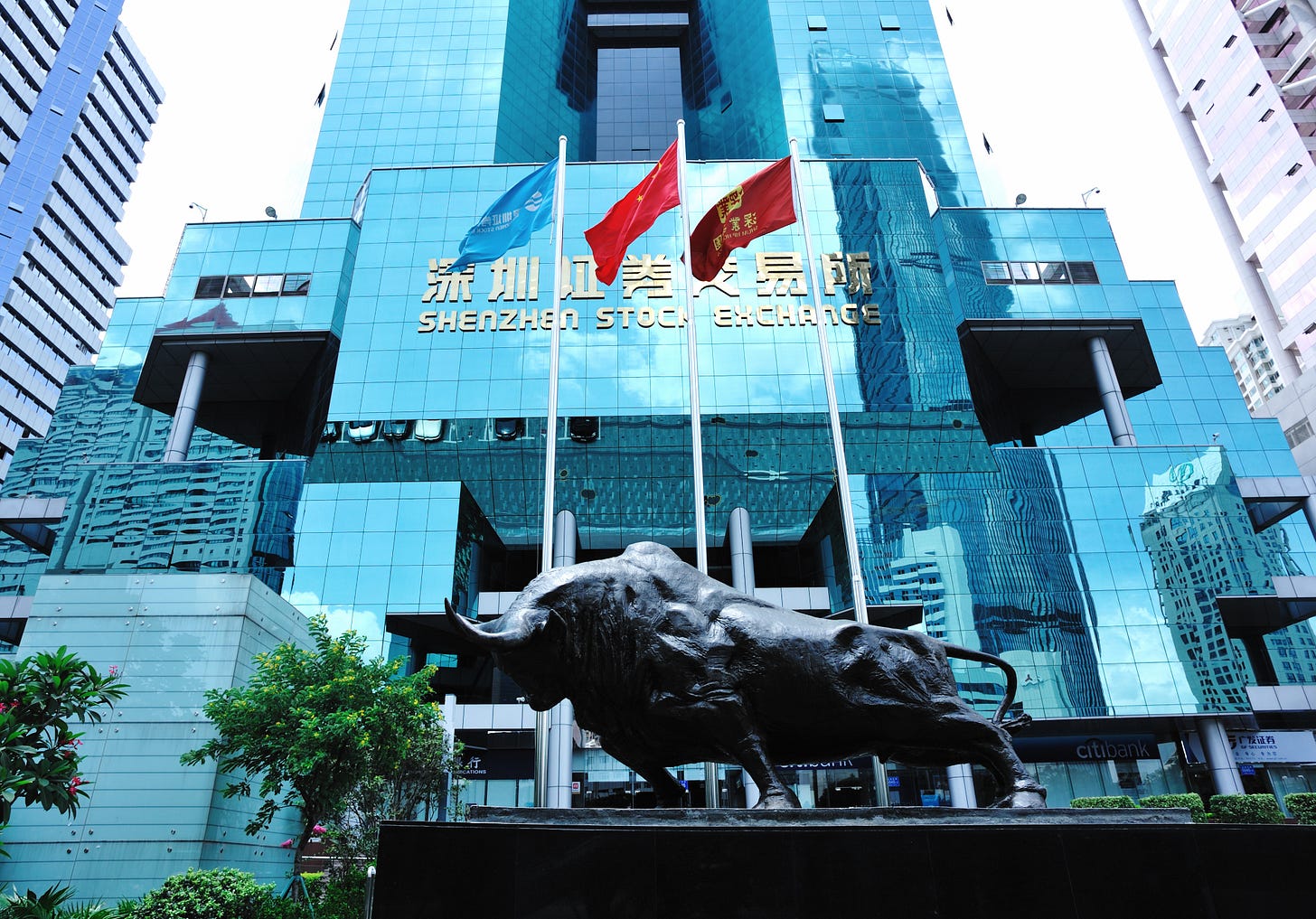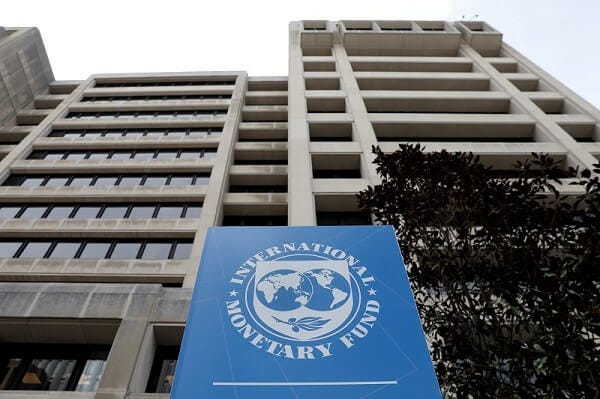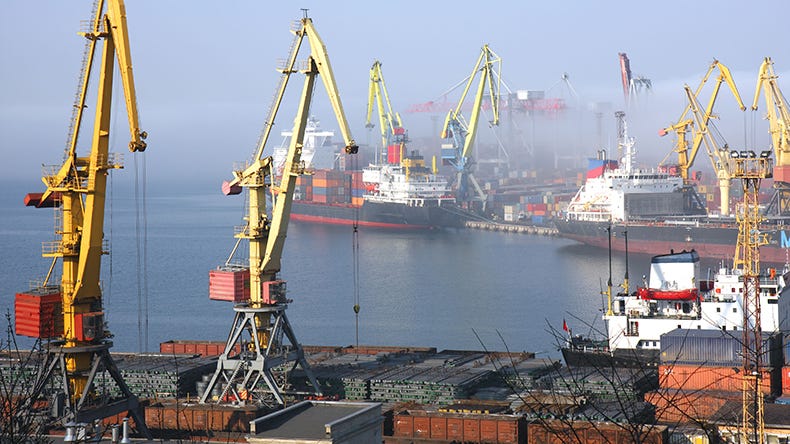Emerging Markets Monitor - October 14
Top Hedge Fund: Buy China Now, Pessimism Abounds on Global Economy, UAE LuLu Group Eyes IPO, Russia Threatens Black Sea Grains Deal, EM Handles Rate Rises Well
The Top 5 Stories Shaping Emerging Markets from Global Media - October 14
Star Hedge Fund Says: China Stocks Have Hit Bottom. Buy Now
Bloomberg
“A top-performing Chinese macro hedge fund said the nation’s stocks rout has run its course, predicting a bull market is around the corner.”
“Shanghai Banxia Investment Management Center, which manages more than 10 billion yuan($1.4 billion), has rebuilt net-long positions in the mainland-traded A-share market to 40% as of the end of last month, according to its September investor letter seen by Bloomberg. The firm had kept equities low since June before adding exposure late last month.”
“‘Standing at this point in time, we’re no longer pessimistic on A-shares,’ the company, led by founder Li Bei, wrote in the letter dated Oct. 10. ‘We’re facing a very good opportunity to gradually buy the dip and long A-shares.’”
“Li, who held zero stock exposure earlier this year, is adding to growing optimism among peers as the government steps up efforts to bolster growth and arrest a property crisis. About 78% of hedge funds say stocks have fully priced in all negative factors and the benchmark Shanghai Composite Index has bottomed out at around 3,000, a key level breached earlier this week, according to a survey by Shenzhen PaiPaiWang Investment & Management Co.”
“Corporate profits probably hit a low in the third quarter, property sales could rebound as soon as next month as regional policies become clear, and covid restrictions could somehow ease after the Communist Party Congress this month, according to Banxia. Those factors should offset a weakening in exports, suggesting China’s economic growth could rebound after October.” Bloomberg reports.
Pessimism Abounds Over Global Economy at IMF-World Bank Meetings
Financial Times
“In one of the bleakest meetings of the IMF and World Bank since the financial crisis, Sri Mulyani Indrawati, Indonesia’s finance minister and chair of the Group of 20 leading economies, summed up the mood… ‘The world is in a dangerous situation.’”
“Indrawati and others were full of talk of geopolitical disagreements, negative economic spillovers from one country to another, and the unintended side-effects flowing from the IMF’s message that countries should ‘stay the course’ on fighting inflation by raising borrowing costs fast.”
“Kristalina Georgieva, managing director of the IMF, said the world was witnessing a transition from predictability, where interest rates and inflation were low, to instability. ‘Shock upon shock upon shock,’ she said, characterising the situation facing participants. ‘We have to really work on changing our mindset to be much more precautionary and be prepared for much more uncertainty.’”
“…Participants shared the IMF’s view that the global economy was in a tough spot – and that the worst was yet to come. Indeed, many thought the fund’s latest projections of growth of 2.7 per cent next year, downgraded substantially from estimates made during the spring, were still too optimistic.”
“The world economy was heading toward a recession, which would be potentially amplified by financial stability of the sort witnessed during the week in the UK. Inflation would remain uncomfortably high into 2023 too, forcing central banks to keep tightening.”
“‘We’re seeing developments and challenges that are either entirely new or are unlike anything that’s been around for at least decades,’ said Nathan Sheets, chief economist at US bank Citi.” The FT reports.
UAE’s LuLu Group Headed for IPO Next Year
The National
“Abu Dhabi’s LuLu Group International is planning to launch an initial public offering next year and has hired investment bank Moelis to advise it on the deal, according to a company representative.”
“The move comes as the retail conglomerate plans to expand its operations across the Middle East. ‘The market sentiment right now is strong and we are confident about the IPO next year,’ V Nandakumar, director of marketing and communications at the LuLu Group, told The National on Thursday.”
“…LuLu Group is currently on an ‘aggressive expansion push both in the existing markets as well as in new countries including Iraq and other countries in North Africa region’, Mr Nandakumar said.”
“LuLu, one of the largest supermarket chains in the Gulf, founded by Indian-born businessman Yusuff Ali, operates 239 stores in 11 countries and has sourcing operations spanning 23 countries including the US, the UK, Spain, Turkey and China.”
“The company's IPO plans come as the number of listings continue to rise in the Middle East and North Africa region as economies recover from the Covid-19 pandemic.”
“In 2020, ADQ, one of the region’s largest holding companies, said it is investing up to $1bn in LuLu Group to help the company expand its operations in Egypt. The two companies will work together to develop 30 hypermarkets, 100 express shops, logistics hubs and distribution and fulfilment centres across the Arab world’s most populous country, they said at the time.”
“ADQ and the Sovereign Fund of Egypt also announced a $20bn platform in 2019 to invest in several sectors including health care, food and agriculture, mobility and logistics.”
“The Mena market recorded a 500 per cent annual increase in the number of listings during the first six months of this year, with 24 IPOs raising $13.5bn, according to an EY report on the region's IPOs. In the second quarter of 2022, nine IPOs raised about $9bn.” Fareed Rahman reports.
Russia Threatens to Quit Black Sea Grains Deal
Hellenic Shipping News
“Moscow has submitted concerns to the United Nations about an agreement on Black Sea grain exports, and is prepared to reject renewing the deal next month unless its demands are addressed, Russia’s Geneva U.N. ambassador told Reuters on Thursday.”
“The agreement, brokered by the United Nations and Turkey in July, paved the way for Ukraine to resume grain exports from Black Sea ports that had been shut since Russia invaded. Moscow won guarantees for its own grain and fertiliser exports.”
“The agreement helped stave off a global food crisis: Russia and Ukraine are two of the world’s biggest grain exporters and Russia is the number one fertiliser exporter. But Moscow has repeatedly complained about its implementation, arguing it still faces difficulty selling fertiliser and food.”
“In an interview with Reuters, Gennady Gatilov, Russia’s ambassador to the United Nations in Geneva, said Moscow had delivered a letter to U.N. Secretary-General Antonio Guterres on Wednesday setting out a list of complaints. U.N. officials are due in Moscow on Sunday to discuss the renewal of the agreement.”
“‘If we see nothing is happening on the Russian side of the deal – export of Russian grains and fertilisers – then excuse us, we will have to look at it in a different way,’ he said. Asked if Russia might withhold support for the grains deal’s renewal over the concerns, he said: ‘There is a possibility…We are not against deliveries of grains but this deal should be equal, it should be fair and fairly implemented by all sides.’” Hellenic Shipping News reports.
Emerging Markets Handling Rate Shock Well
The Economist
“The prospect of rising interest rates in America has long stoked anxiety as far away as Mexico City, Delhi and Jakarta…By comparison, this time seems curiously calm. Although the Fed is raising rates at its most furious pace since the Volcker era, much of the market drama has centred on rich countries rather than emerging ones. It is the central bank in Britain, not Brazil, that is scrambling to avert a bond-market crisis, triggered by the government’s reckless budget.”
“In part this resilience is testimony to the fact that emerging markets are in better health today….Part of the answer lies in the reason for the dollar’s strength. Rather than being fuelled by an aversion to risk and a flight towards safe American assets, much of it reflects differences in economic fundamentals and anticipated interest rates. And the fundamentals for emerging markets have vastly improved, with decent growth, bigger reserves and deeper local capital markets that can help absorb shocks.”
“Rather than letting inflation spiral, central banks in emerging markets were also quick off the mark, raising rates well before their peers in the rich world. Annual inflation averaged 10% across emerging countries in the second quarter of this year…Emerging economies have also so far intervened in currency markets only modestly. The Economist reports.
“Stay away from those people who try to disparage your ambitions. Small minds will always do that, but great minds will give you a feeling that you can become great too.” — Mark Twain






